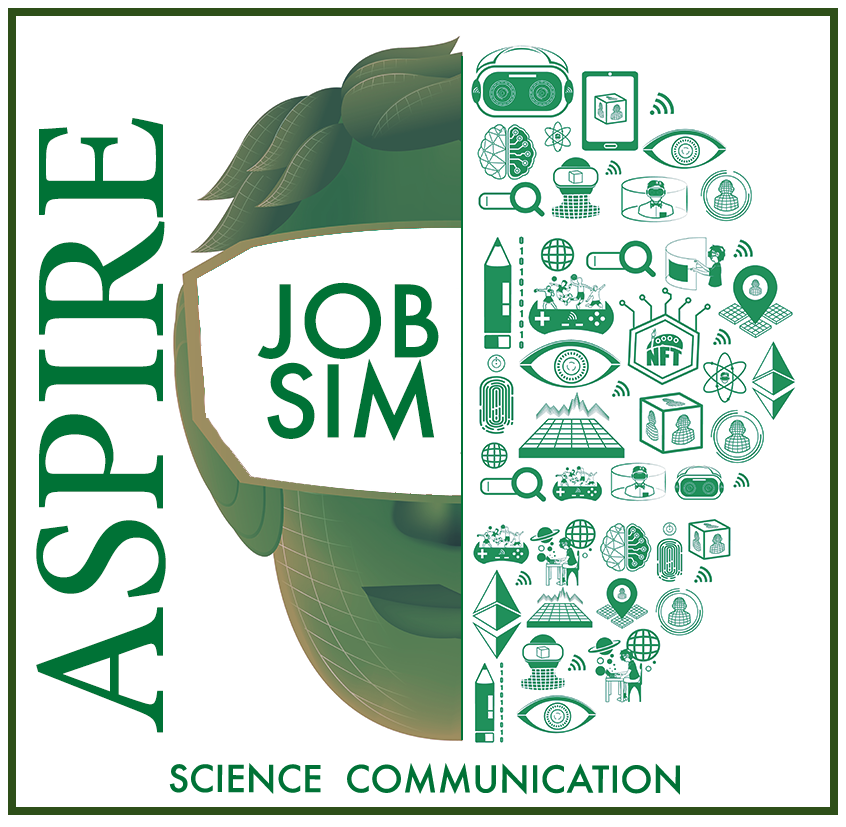ASPIRE Job Sim: Science Communication
 Covering study stories is a common entry point into the field for many science journalists. Despite the limitations of the form — notably that study stories risk overhyping or elevating an individual result beyond the significance it deserves — understanding how to “report out” and write about an individual study is a fundamental skill, and a building block for writing about science in other, more complex formats, such as in longer feature articles, profiles, or investigations.
Covering study stories is a common entry point into the field for many science journalists. Despite the limitations of the form — notably that study stories risk overhyping or elevating an individual result beyond the significance it deserves — understanding how to “report out” and write about an individual study is a fundamental skill, and a building block for writing about science in other, more complex formats, such as in longer feature articles, profiles, or investigations.
Would you like to take a deeper dive into what writing a study story for a generalist science media outlet such as Science, Nature, or Scientific American entails?
Please join the ASPIRE Program as we host a job simulation workshop on science communication in partnership with The Open Notebook.Siri Carpenter, Ph.D., editor and co-founder and editor-in-chief of the journalism nonprofit The Open Notebook will provide instruction in important topics around writing a study. Next, participants will be presented with their assignment: To write a short study story (based on provided materials) as if it were intended for a generalist science media outlet such as Science, Nature, or Scientific American. In the second session, group will receive feedback on assignments.
This exercise is intended to help you decide if a career path science communication aligns your skills and interests and is a valuable way to learn more before you invest significant time and energy into completing an internship or seeking additional training.
Instructor: Siri Carpenter, Ph.D., editor and co-founder and editor-in-chief of the journalism nonprofit The Open Notebook
Capacity: 20 participants
Eligibility: Open to Vanderbilt biomedical sciences and postdoctoral fellows and PhD students who have passed their qualifying exams before Sept 26, 2023.
Applications due Monday September 18, 2023
Program Breakdown
PART 1: Practical instruction September 26, 2023, 1pm via Zoom
This initial 3 hour virtual session will cover topics such as:
- Understanding the basic structure of a study story
- Selecting a study to cover
- Reading studies as a journalist
- Planning and conducting interviews with authors and outside experts
- Putting the pieces together
- Making the story sing
At the end of the workshop, we’ll have time for questions and further discussion, following which participants will be presented with their assignmentParticipants will come away from the initial session with materials designed to facilitate their assignment.
PART 2: Simulated. assignment: Write a study story
Participants will be provided with a selected story to “cover” and will also be provided simulated transcripts of completed interviews to draw on in writing their stories. Job sim participants will “file” their completed study stories to the instructor by October 18, 2023. They will be invited to append a note of up to 200 words explaining any aspects of the assignment they found particularly challenging or that they have questions about that they hope can address during the upcoming feedback session.
PART 3: Office hours with Siri Carpenter
During this period of time, the instructor will hold three one-hour Zoom “office hours” periods, and participants may drop in to ask questions or seek help during as few or as many of these periods as they like.
Dates of scheduled office hours (all held at 1pm via Zoom)
- Thursday, September 28
- Monday, October 2
- Monday, October 16
PART 4: Feedback event October 31, 2023 via Zoom
A second, one-hour session will be held during which the group will receive feedback on assignments. The purpose of this session won’t be to deliver individual feedback or edits sufficient for participants to revise their stories. Rather, the purpose is to help interpret their experience and reinforce their understanding of what reporting and writing a study story to a publishable editorial standard entails. During this session we’ll also discuss what editors’ expectations tend to be for the editing process and how reporters can respond effectively to edits. For example, what should they do if they don’t understand the reason for an edit, or if they disagree with? If an editor asks questions in their edits, where and in what form should they respond? What amount of editing is “normal” and to be expected?